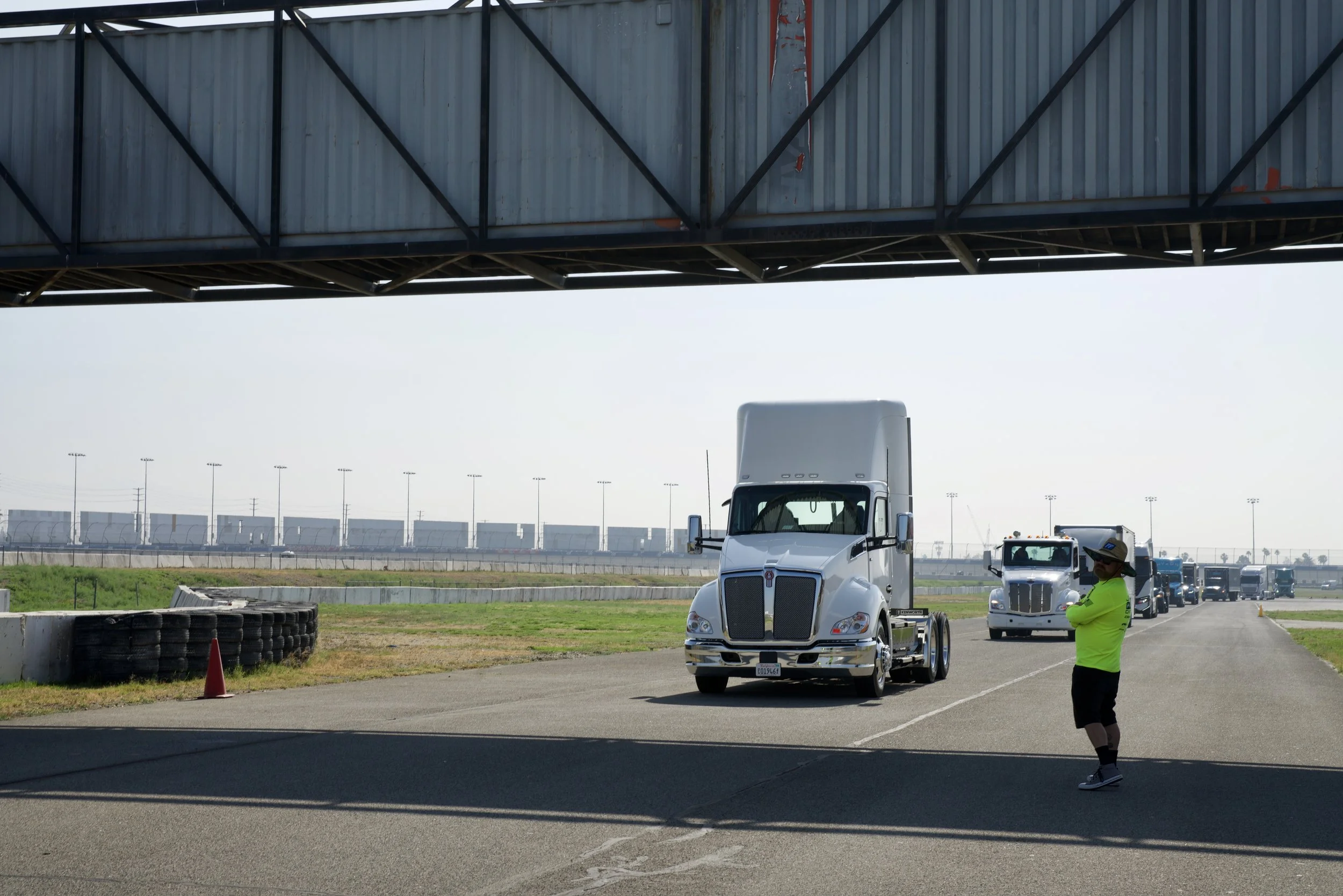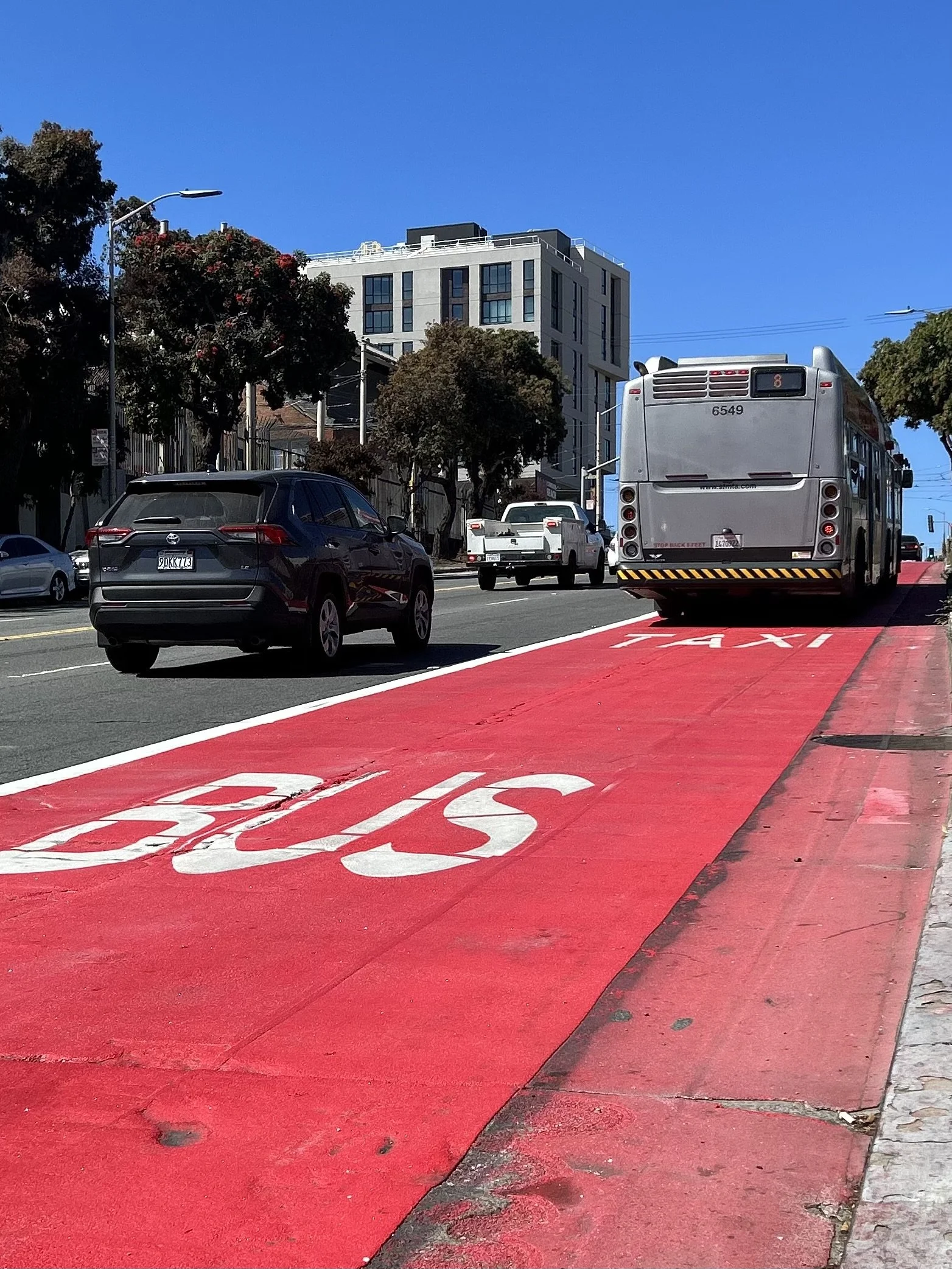Community Efforts Lead the Way in Sacramento’s River District Transit Plans
Strategic Growth Council
The Sacramento Integrated Multimodal Place-Based Living Project is a Transformative Climate Communities initiative aimed at strengthening community engagement, increasing affordable housing, and expanding public transit in the River District neighborhood of Sacramento. One of the key features of the project, the Dos Rios Light Rail Station, will significantly increase residents’ accessibility to Downtown Sacramento and the greater Sacramento Area. The Mirasol Village Community Garden represents another success of the initiative, giving residents the opportunity to cultivate fresh produce and forge community bonds.
A Clean Ride to School: School Districts Go 100% Zero-Emission
California Air Resources Board
California Climate Investments funding has supported the deployment of over 1,100 zero-emission school buses at over 300 public school districts and local education agencies across the state. In both rural and urban communities across California, school districts are operating more zero-emission fleets, supporting the health and safety of students and reducing fleet operating costs.
Supporting the Adoption of ZEVs with a Free Technical Assistance Program
California Air Resources Board
In August 2023, the California Air Resources Board (CARB) and transportation nonprofit CALSTART launched Cal Fleet Advisor, which offers free technical assistance to help owners and operators integrate more zero-emission medium- and heavy-duty vehicles into their fleets. The program, which receives California Climate Investments funding as part of the administration of the Clean Truck and Bus Voucher Incentive Project (HVIP), provides helpful services to ease the transition to cleaner technology for fleets across the state.
Port of Los Angeles Reduces Emissions with CORE Incentives
California Air Resources Board
The Port of Los Angeles (POLA) has taken a significant step toward a greener future with the deployment of five brand-new Taylor ZLC 996 Electric Top Handlers. Supported by $2.5 million in California Climate Investments funding through the Clean Off-Road Equipment Voucher Incentive Project (CORE), this initiative marks a milestone in reducing greenhouse gas emissions and improving air quality in and around California ports.
The High-Speed Rail Project: Progress Over the Last Decade
California High-Speed Rail Authority
Funded in part by California Climate Investments, the High‑Speed Rail Project has made investments to contribute to economic development and a cleaner environment, support jobs, and conserve and protect agricultural lands. Implementation of the High‑Speed Rail Project provides a variety of benefits to Californians. Estimated GHG emissions reductions from the High‑Speed Rail Project are 84 to 102 MMTCO2e over its first 50 years of operating life, as detailed in the 2023 California High‑Speed Rail Sustainability Report.
San Joaquin Valley's Agricultural Community Adopts Innovative Changes with FARMER
In the heart of California, the San Joaquin Valley is a region where agriculture is not just an industry but a way of life for many. CARB’s Funding Agricultural Replacement Measures Emissions Reductions (FARMER) Program funds transformative initiatives that foster the adoption of innovative farming techniques, integrating advanced agricultural technologies, and promote community engagement and has been making monumental steps towards more sustainable agriculture across the valley.
Many Hearts Coming Together for San Francisco’s AHSC Project
In October 2023, the City of San Francisco’s Balboa Park Neighborhood held a ribbon cutting for 131 new affordable homes adjacent to the Balboa Park Bay Area Rapid Transit (BART) Station, known as Kapuso at the Upper Yard. These homes were built thanks to
$29.9 million from SGC’s Affordable Housing and Sustainable Communities (AHSC), in its fifth round of funding. The AHSC program funds the construction of affordable housing near transit as a key strategy to reduce GHG emissions by reducing vehicle miles traveled, and Kapuso at the Upper Yard is a key example of the need for this work.
Realizing Carshare Benefits in Priority Populations
Since 2015, the City of Los Angeles (LA), in partnership with the LA Department of Transportation and the Mayor’s Office, has received a total of $4.7 million from CARB’s Clean Mobility Options program for a zero‑emission car share pilot project. This project, known as BlueLA, is operating in 13 underserved communities that face significant air quality burdens and have historically been excluded from environmental benefits. BlueLA provides a clean and affordable mobility option in these communities, which include Downtown, Pico Union, West Lake, and Koreatown.
Revitalizing Rural and City Transit: Electric Buses arrive in Merced County
In the heart of the San Joaquin Valley, a transformative project is underway to reshape public transportation in communities around Merced. Thanks to $3.1 million in funding from the California State Transportation Agency's Transit and Intercity Rail Capital Program (TIRCP)—half from California Climate Investments and half from SB 1 funds—the Transit Joint Powers for Merced County initiative addresses critical transit needs in disadvantaged communities. The initiative improves air quality and spurs economic growth by adding battery‑electric buses into The Bus, Merced County’s public transit system.
Over a Decade of Funding Technology Advancement: A Look at Large Scale Truck and Bus Replacement Investments
The Clean Truck and Bus Voucher project, also known as HVIP, has been a key facilitator in achieving California’s long‑term strategy of transitioning its trucking fleet to zero‑emission vehicles (ZEV). This transformation has been a multiyear process, starting with demonstration and pilot projects and moving to regulations combined with incentives.
Funding ZEV Workforce Training and Career Development for Priority Populations
Through the Inclusive, Diverse, Equitable, Accessible, and Local (IDEAL) ZEV Workforce Pilot Project administered by the California Energy Commission and co‑funded by CARB, Fresno City College has offered three high schools in Fresno County the opportunity to introduce their automotive students to ZEV technology. Training was provided in December 2023 for high school teachers at each of the three schools, and they were provided with tools and equipment to offer the new ZEV curriculum starting in spring 2024.













